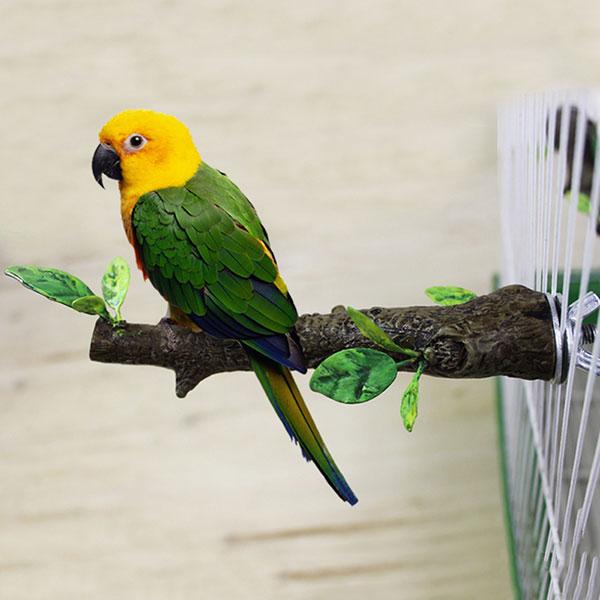
Pet Birds: What You Need to Know
Tuesday, January 2, 2018
If your family is considering a pet bird, the American Veterinary Medical Association and the Association of Avian Veterinarians provide a wealth of information. Here are some excerpts:
Pet birds come in many sizes and colors with a variety of personalities. A finch has a wing span of a few inches while a macaw’s wing span can be up to four feet. Cockatiels are usually active and cheerful birds. Some parakeets (budgies) and cockatiels will learn to talk while an African Grey or Yellow-naped Amazon parrot can potentially develop an extended vocabulary.
Select the largest cage that can be accommodated in your home. In most cases the cage should be wider than it is tall to accommodate stretched wings. However, ample height should be provided as well for long-tailed birds.
Perches can be purchased or made of clean, pesticide-free natural wood branches. Replace perches frequently when they become worn, soiled or damaged.
Place perches on opposite sides of the cage to allow for smaller birds to fly. More perches can be provided for more agile climbers, like parrots. Place perches so that droppings do not fall into water dishes and the tail doesn’t rub the side of the cage or fall into food or water dishes.
Line the cage with newspapers, paper towels or plain cage liner paper. Avoid using wood chips, chopped corn cobs, kitty litter or sand as the cage substrate under the grating. Birds should avoid direct contact with the substrate as it tends to grow bacteria and fungus.
Daily clean the cage floor and food and water bowls. Blood on the floor or unusual condition of droppings can alert you to potential signs of illness. A thorough cleaning of the cage weekly is recommended.
Place the food at the opposite end of the cage from the water to ensure that your bird gets some exercise between eating and drinking. Use wide bowls rather than deep cups to display the food attractively to help encourage your bird to eat new items. Have two sets of dishes so you can use one and clean one.
Proper diet is critical for overall health in all species. Commercial formulated diets for pet birds are easiest. Homemade diets can be considered. They tend to be time consuming and should be developed with the aid of a professional nutritionist.
A diet of about 75 percent pellets and 25 percent carefully selected vegetables and fruits seems to work best. Seeds and nuts should be reserved as treats.
Select toys with safety of the bird in mind. Toys serve as mental diversions and tend to encourage physical exercise and beak wear. Chewable items include branches, pinecones, rawhide chews, natural fiber rope, and soft white pine.
Some birds also like to tear paper or a cardboard roller from toilet paper. A piece of corn on the cob or pomegranate is entertaining. Even branches with leaves placed on or against the outside of the cage for the bird to pull through the wires is “occupational therapy.”
Routine grooming of your pet bird consists of nail and wing trimming. Wing clipping should be carefully considered. Wings are generally clipped to prevent escape or injury in the home; for example, to prevent flying into windows or ceiling fans.
Most birds enjoy daily bathing and spend a great deal of time keeping their feathers in prime condition. Some will bathe in a dish or bowl, others prefer a shower or bathing under the faucet.
New pet birds should visit an avian veterinarian as soon after purchase as possible. Routine veterinary visits help detect signs of illness early and keep birds as healthy as possible.
The life span of pet birds varies. Parakeets live an average of six years, cockatiels nine years, canaries about eight years. Many individuals will live over 20 years and some species regularly live longer than 40 years. Remember when you choose a pet, you are making a commitment to care for that animal for its lifetime.
by Ian Kanda, RVT, Avian, Exotics and Zoo Medicine Service
Veterinary Viewpoints is provided by the faculty of the OSU Veterinary Medical Hospital. The Hospital has an Avian, Exotics and Zoo Medicine Service staffed to care for pet birds. Certified by the American Animal Hospital Association, the Hospital is open to the public providing routine and specialized care for all species and 24-hour emergency care, 365 days a year.
